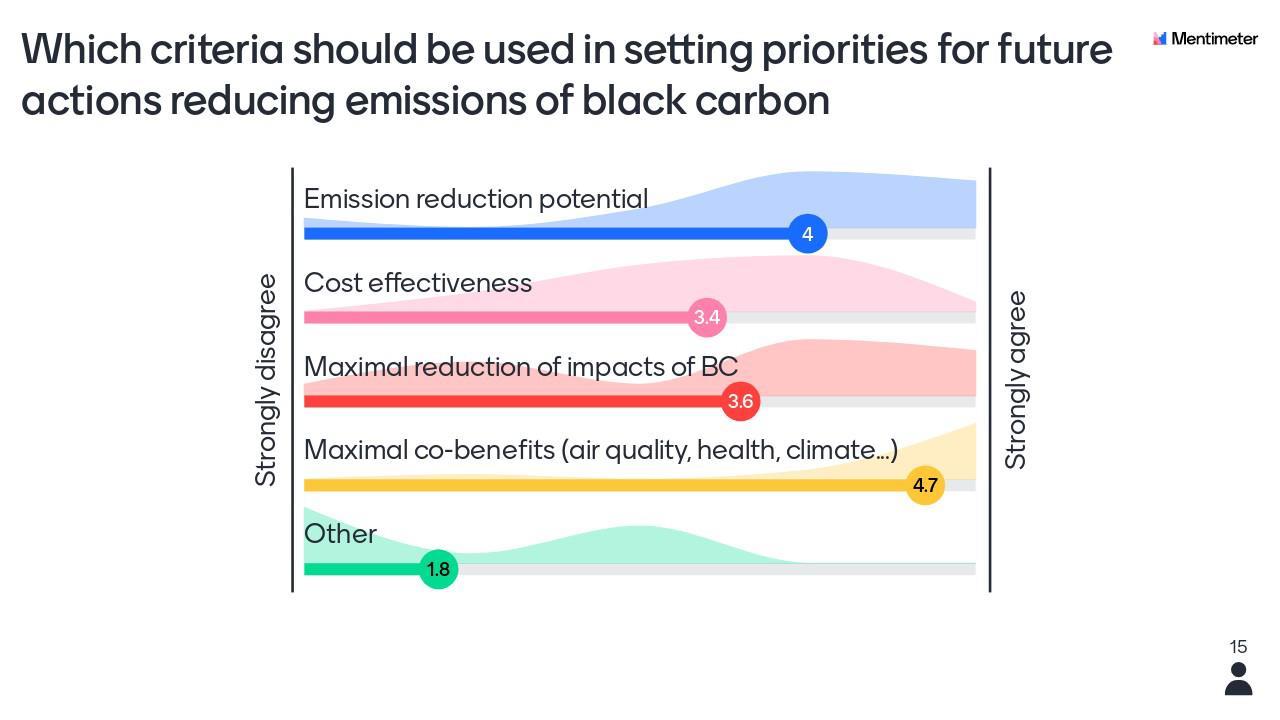Online workshop discusses a roadmap for black carbon action
Health and climate impacts of black carbon make it urgent to reduce emissions. What are the best strategies for doing so? What ongoing policy processes and initiatives could be facilitated? These are key questions for the EU-funded Action on Black Carbon in its final project year when it has embarked on the process of developing a “roadmap” for moving black carbon action forward. The focus is on enhancing international cooperation and finding ways of aligning activities occurring under different umbrellas in such a way that they support and reinforce one another with the overall goal to reduce emissions in a cost-effective way.
On 16 June 2020, 34 people gathered online to discuss some of the preliminary insights from the analysis and provide input to its further development. The participants represented a range of expertise from science and on-going policy processes, and an important goal of the workshop was to identify stakeholder and user needs.
The road map exercise consists of analyses of potential actions in five specific sectors (gas flaring, domestic heating, shipping, on and off-road diesel, and open burning), in observations and monitoring, and in relations to emissions reporting. These have been developed based on work during in the first two years of the Action, including technical reports on best available technologies, observations systems, and emission inventories, along with analyses of baseline and mitigation scenarios. In addition, a meta roadmap is being developed to highlight overarching policy processes and to place the specific sectors initiative into context.
The discussion on emissions reporting highlighted that there is huge variability in what is being reported, creating large uncertainties, and that there is a need to mobilize research to improve emission inventories and to link inventories, observation, and modelling.
A presentation on open burning emissions, highlighted that emissions from forest fires north of 60o are increasing but also that there is a need for more knowledge about the amount of burning.
An OECD study was presented on economic analysis of black carbon mitigation. It highlighted that all Arctic Council countries gain from implementing better technologies and that improved air quality would result in both better welfare and GDP savings. A final report will be published in late 2020.
A presentation of the draft meta roadmap highlighted the need to identify co-benefits of various actions and windows of opportunity in the different policy processes.
In addition to engaging in the discussion, the workshop participants were invited to take part in a mentimeter exercise to gauge their preferences about what should be highlighted in future policy development. Among those who voted, maximum co-benefits across air quality, health and climate appeared as the top criteria in setting priorities for future actions.
The Action’s road map documents will be further developed and circulated for review, with the aim to publish them by early 2021. For more information on the roadmap process and plans, contact Stefan Åström: [email protected]. For further information on the EUA-BCA initiative, please contact Simon Wilson: [email protected] and Russel Shearer: [email protected].

